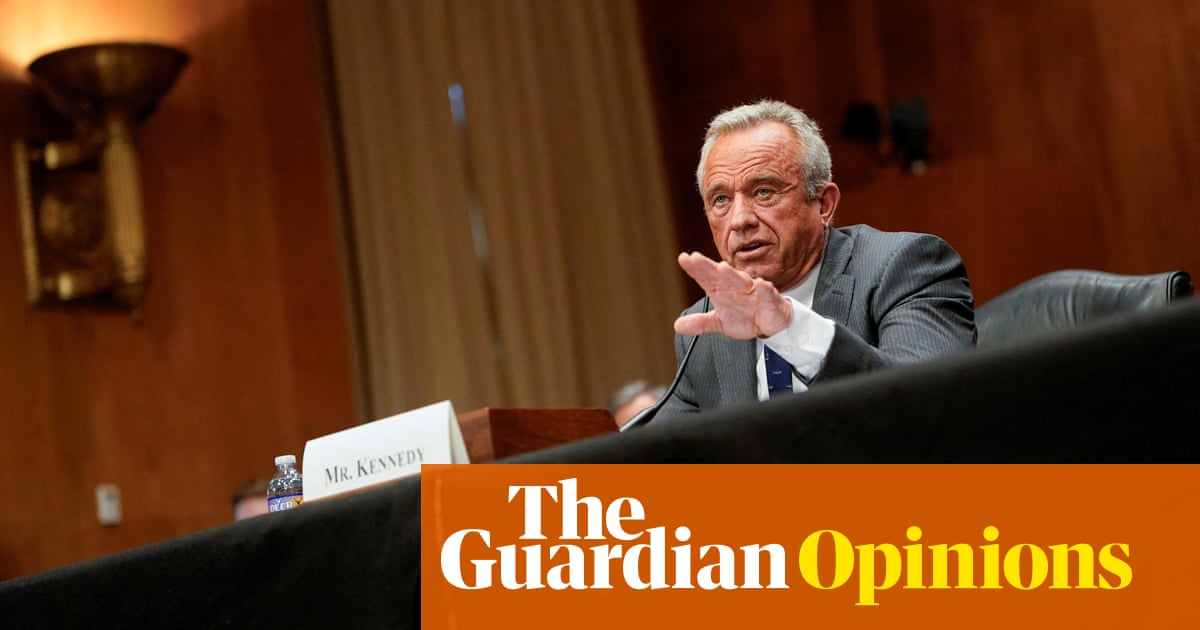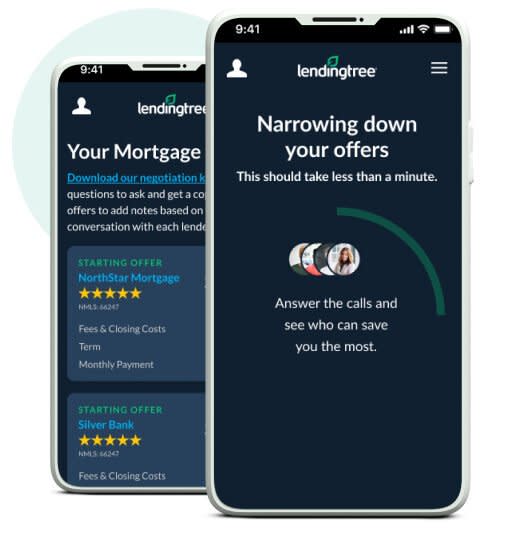My conversation with Abigail Disney opens with the kind of bog-standard line that starts most chats. But because she is a left-leaning American, with a record of righteous criticism of the man now once again in charge of her country, I suspect it might invite a very long answer indeed.
Still, out it comes: “How are you?”
“It’s a good question,” she says, “because we’re all struggling with it.”
A deep breath. “I spend a lot of time trying to think of reasons to be optimistic, because I don’t know how to function without that. And I want to find the energy and the grit for a really long fight. This isn’t just four years … you know, there’s a whole civilisation-level reset to be done. I mean, I heard the other night when Trump spoke, he mentioned that we would get Greenland one way or another. And then there was laughter. Laughter! I just thought, ‘Oh, we have sunk so low.’”
The film-maker (and the grand-niece of Walt Disney) is speaking to me on video call from her home in Manhattan. She talks with a mixture of speed, eloquence and certainty – partly because her view of Donald Trump and his allies is all about something with which she is well acquainted: wealth, and what it does to people.
“Trump is an inheritor,” Disney tells me. “He never acknowledges it, but he wouldn’t have been able to do any of the things he did without an inheritance. He absorbed the lessons of inheriting money almost unfiltered: ‘You have this money because you’re special.’ If you read about his childhood, it’s like the textbook worst way to raise a person – you know, he was violent, he was a bully and he was rewarded for that, even as a very small child. And the more money he had, the more he exhibited these bad qualities, and the more people told him he was wonderful.”
I then mention something she well knows: that Trump’s sidekick Elon Musk is also from a very wealthy background, having started his first business ventures with money provided by his father, and then becoming rich beyond the dreams of avarice. This, she tells me, partly explains the frazzled morals of someone who has just imposed all those cuts to overseas aid, with apparently no regard for the consequences.
Among the schemes Musk has frozen, Disney points out, was the Pepfar programme, AKA the President’s Emergency Plan for Aids Relief, which is estimated to have saved 25 million lives by supplying medicine to people with HIV and Aids around the world. “There are people suffering and dying today because of that cut,” she says. “There are children who have HIV who shouldn’t because of Elon Musk. Now. As we sit here and talk.”
She exhales. “That natural human proclivity to say, ‘Hmm, that doesn’t feel right’ – he doesn’t have it. Trump doesn’t have it. They’re spending no time in shame, and shame is a righteous emotion. It’s not an emotion you want to live in, but it’s an emotion you want as a motivator sometimes. And where is it? Where’s the shame?”

What makes Abigail Disney fascinating is that she is also an inheritor. To quote from a speech she recently made – at the Vatican, where she took part in an event focused on making wealthy people around the world pay more tax, and the idea that large concentrations of wealth now threaten democracies – she acknowledges that she is rich “only because of some quirks in the tax system, some good luck, and some very loving grandparents. But nothing else.”
Now a 65-year-old mother of four, she is the granddaughter of Roy O Disney, who, with his brother Walt, founded the Walt Disney company in 1923. In her early 20s, she resolved to start giving away large chunks of her inheritance. By 2021, she had donated approximately $70m to causes centred on women living with HIV, women in prison and women affected by domestic violence. She has long been a member of the Patriotic Millionaires, an American organisation focused on changing the system so that people as rich as its members – and those who have even more money – pay more of their income in tax.
“I am of the belief that every billionaire who can’t live on $999m is kind of a sociopath,” she says. “Like, why? You know, over a billion dollars makes money so fast that it’s almost impossible to get rid of. And so by just sitting on your hands, you become more of a billionaire until you’re a double billionaire. It’s a strange way to live when you have objectively more money than a person can spend.”
She has also campaigned – successfully – to improve wages and conditions for workers in the theme parks that bear her family name (she still owns shares in Disney, though not, she says, enough to give her substantial clout). As an active Democrat, she was among the big political donors who, in the summer of 2024, said they would withhold money from the party until Joe Biden stepped down as its candidate in the presidential election.

But aside from all that work and her advocacy on wealth and tax, Disney is chiefly known as a film producer and director, some of whose work has presciently looked ahead to the polarised, angry country the US seems to have become.
In 2015, for example, she made The Armor of Light, an acclaimed and very sobering documentary about Rob Schenck, an evangelical pastor based in Washington DC who was long associated with the American hard right, with views on abortion to match. The film portrays him trying to find the courage to speak out about the scourge of American gun violence and pull his followers out of their love affair with firearms; after it was released, he and Disney began to regularly make their case to gatherings of rightwing Christians.
But as Trump began his march towards the White House, they started to get a sharp sense of what his politics were going to do to American society. “When I first started asking about Trump, the people we met were like, ‘Are you kidding? No way – he’s a joker, he’s nothing.’ And then, halfway through the summer of 2016, it was like the iron curtain came down, and we stopped getting invitations. And when Trump was elected, we never got another request to speak.”
For Schenck, things were about to get very ugly indeed. Over decades, he had been involved in the campaign to nullify Roe v Wade, the US supreme court judgment that established women’s constitutional right to abortion – which, in 2022, was overturned. But three years before that watershed decision, he wrote an opinion piece for the New York Times announcing that he had changed his mind. At that point, Disney tells me, former allies who were now staunch Trump supporters turned on him.
“Death threats and all kinds of things came in,” she says. “He was told he was going to hell by people he had been friends with for 40 years. It’s horrible what he’s been through.”
That kind of belligerent nastiness is arguably the defining feature of the mindset of the president and his followers, but Disney is adamant that the roots of his politics lie in wealth and privilege, and how Americans view those things. As she sees it, Trump and Trumpism are not some sudden bolt from the blue: his rise to power, she says, highlights a cultural shift that began in the 1980s, when the US really started to venerate the wealthy.
“Our magazine covers did not used to be littered with CEOs,” she says. “They used to have pictures of Martin Luther King on them, or a war hero, or the woman who founded the Girl Scouts. Just look at the magazine covers and you’ll see the way this country has lost its way.”
Soon enough, along came reality TV, the frenzied worship of a new kind of celebrity, and social media. Trump, clearly, has skilfully used them all. “We all laughed and said he was stupid, but obviously he’s not,” she says. “In the 19th century he would have sold a lot of snake oil. He came along right at the correct moment. And he played his role brilliantly. You’ve got to give it to him.”

One question hangs over the whole of our conversation: what is to be done?
For now, Disney tells me, pursuing political activism via film-making probably isn’t an option. She is understandably worried about what Trump and Musk might have planned for such outlets as the non-profit Public Broadcasting Service (PBS), which might once have played a key role in holding them to account. The fact that the TV and movie industries are in crisis – thanks to recent writers’ strikes, and the impossible economics of streaming – makes things even more difficult. “I’m thinking of maybe pivoting to short videos – just talking at the camera, and doing that low-maintenance kind of thing,” she says. “I feel like I’m missing an opportunity if I don’t go on social media and try to be present as a public voice.”
As the Trump revolution gathers pace, I tell her, I often wonder when massed opposition will materialise. Put another way, why aren’t millions of people already in the streets?
She sighs. “We could all show up on the streets. But what would be the uniting message? The chaos is deliberate: it’s meant to give us too much to handle. Do we go out there about the environment? Do we go out there about DEI [diversity, equality and inclusion policies]? Do we go out there about gay rights, about women’s rights?
“You know, the difficulty of being progressive is that it’s difficult to unite everybody around a single issue. So most of the progressives I know are trying to figure that out. And even if we did go out [on the streets], what is our leverage? We have none.”
What does she mean by leverage?
“Well, we [Democrats] have a minority in the House and the Senate. We have a cabinet that is so radical, and they are lining the government with people who are beyond radical and there is no place where we can exercise visible dissent … We’re being shut out. And the way of communicating has completely changed. An op-ed in the New York Times isn’t going to change things.”

Disney is at pains to talk about the necessity of slow and arduous work: building opposition from the grassroots up – which will be helped, she says, by the fact that Trump and his cronies will sooner or later hit no end of problems.
“I really don’t think it will take very much time for a lot of the people who voted for him to regret it, especially on the economy,” she says. “We’re going to have so much inflation: the tariffs are terrible. I think that there’s going to be some turning, and in the meantime we have to really work on building institutions. Black associations, neighbourhood associations, PTAs – we need to do the work of rebuilding those spaces. We need the basis of a really vibrant progressive society. We let it die.”
When I mention the progressive flag-bearers Bernie Sanders and Alexandria Ocasio-Cortez, who have recently been organising Fight Oligarchy events across the US, Disney speaks with an urgency that sounds almost optimistic.
“We need Bernie barnstorming,” she says. “We need AOC barnstorming. We need, you know, the people we have that are greeted as authentic in the real world, not focus groups, to go out and be authentic with their passion and their smarts about where to go from here.”
She mentions a handful of impressive young Democratic politicians such as Maxwell Frost, the 28-year-old congressman from Florida who had a key role in the pro-gun-control movement March for Our Lives. “There’s a bunch of people,” she says. “And what we need to do is put together a coordinated campaign. But you’ve got to build the infrastructure to do it.”
We end as we began, with Donald Trump, and how awful he has made so many Americans feel. “He has a critical mass of 35% to 40% of the American public – which is far too many people – who are completely on board with the cruelty and the derision and the trolling,” Disney says. “But that leaves everybody who’s either too tired, or too alienated or estranged from the process.”
She suddenly brightens. “They’re ours,” she says. “But we have to do the work.”

 German (DE)
German (DE)  English (US)
English (US)  Spanish (ES)
Spanish (ES)  French (FR)
French (FR)  Hindi (IN)
Hindi (IN)  Italian (IT)
Italian (IT)  Russian (RU)
Russian (RU)  4 weeks ago
4 weeks ago
























Comments